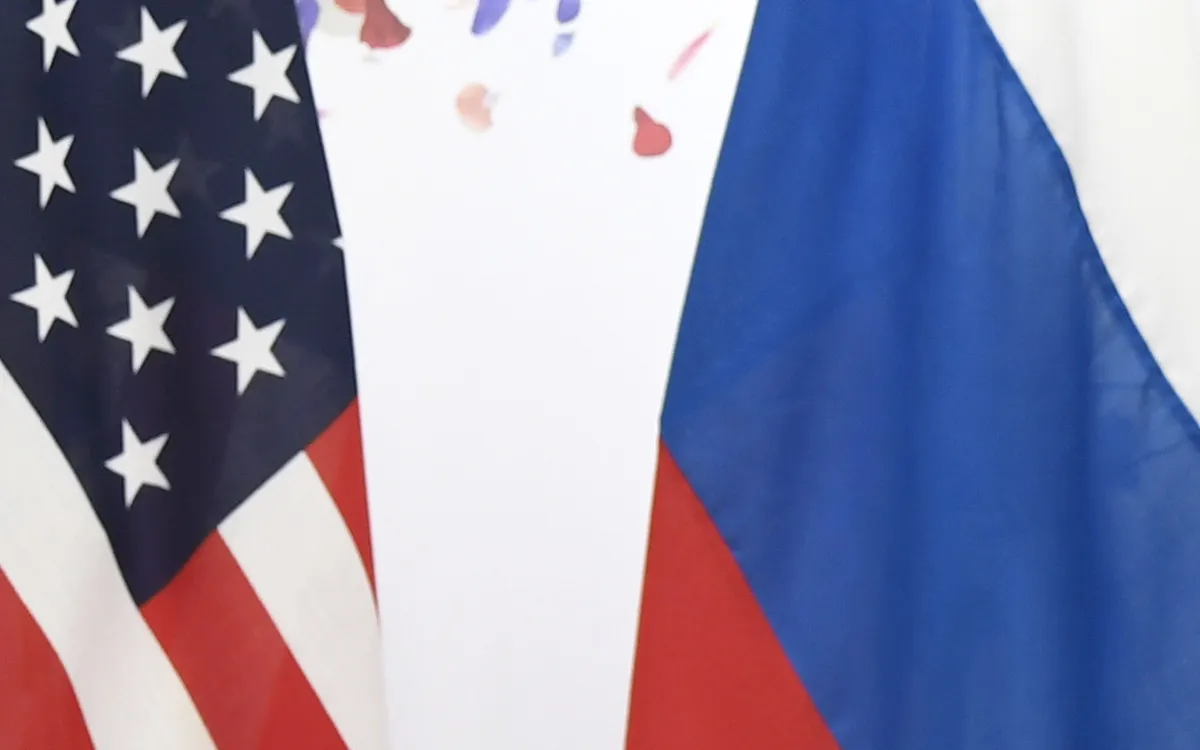
In a recent social media post, Donald Trump characterized his call with Vladimir Putin as “a very good and productive one.” Trump noted that both leaders share "an understanding" to work swiftly towards achieving a Complete Ceasefire and, ultimately, an end to what he described as a "very horrible War." This optimistic tone, however, contrasts with the more cautious and demanding interpretation provided by the Kremlin.
The Kremlin's official readout of the conversation took a more measured approach, emphasizing that the "key condition" for a permanent end to the war, according to Putin, is the cessation of all foreign military aid to Ukraine and the suspension of Western intelligence sharing with Kyiv. However, the Kremlin did acknowledge that Putin "responded positively" to Trump's proposal for a 30-day pause on attacks targeting energy infrastructure, and he "immediately" ordered the Russian military to comply.
Despite this, the Kremlin's statement left a potential loophole. While Trump’s administration indicated that all types of infrastructure would be protected during the ceasefire, Russia did not explicitly commit to halting attacks on key Ukrainian assets such as ports and bridges, which could be critical in the ongoing conflict.
Ukrainian President Volodymyr Zelenskyy addressed reporters via Zoom on Tuesday evening, expressing cautious optimism amid ongoing Russian attacks on Kyiv and other cities. He described the situation as “a step towards peace, and not towards further complication of military combat situations.” Zelenskyy noted, “Of course, we are glad that there is a first step, and this is what we offered: silence in the sky and at sea. The Americans offered more, a complete ceasefire. In fact, the Russians refused.”
As news of the call unfolds, sources in Kyiv indicate a desire to scrutinize the details carefully. There is hope that the accounts of the conversation align with proposals previously made by Ukrainian negotiators, although there remains frustration over the inability to target Russia's oil refineries, which are vital to its economy. Roman Lozinskyj, a member of the Ukrainian parliament, commented on this sentiment, stating that the confirmation of the impact of Ukrainian strikes on Russia’s energy sector is “our card.”
During the call, Putin also informed Trump about a planned exchange of 175 Russian prisoners for an equal number of Ukrainian prisoners, which is set to take place shortly, according to the Kremlin. Daniel Fried, a former U.S. Ambassador to Poland, critiqued Putin's terms for ending the war as effectively a “surrender” for Ukraine, noting, “Putin’s not talking about withdrawing his own troops, so we should have no part of that.” Fried emphasized that any ceasefire must be linked to security for Ukraine.
Despite these criticisms, Fried acknowledged that the call itself was “not a disaster,” as neither leader conceded significant points. This conversation, the second between Trump and Putin since Trump assumed office, lasted approximately two hours and followed a meeting in Saudi Arabia where U.S. and Ukrainian officials initially agreed on a month-long ceasefire proposal.
In the current geopolitical landscape, Secretary of State Marco Rubio has indicated that the responsibility now lies with Russia to demonstrate a genuine commitment to engaging in U.S.-led talks aimed at concluding the conflict. However, Trump has yet to apply the same pressure on Putin that he has on Zelenskyy.
Both leaders expressed a desire for improved relations and cooperation in other areas. However, it remains uncertain whether Putin’s stringent conditions for a broader ceasefire—such as halting foreign defense aid to Ukraine, barring Ukraine from future NATO membership, and mandating new presidential elections—will be acceptable to Zelenskyy.
Earlier on the same day, Ukraine's Chief of Staff and lead negotiator, Andriy Yermak, clearly outlined Ukraine's red lines: “Ukraine does not discuss neutral status and reducing the size of its Armed Forces. We will never recognize any temporarily occupied territories as Russian,” Yermak stated.
As the conversation between Trump and Putin unfolded, it became evident that Trump's focus was on determining the extent of territory Russia could retain in a peace settlement. He frequently mentioned the Zaporizhzhia nuclear power plant, situated within Ukraine but currently under Russian control. Over the weekend, Trump’s national security adviser, Mike Waltz, remarked that Ukraine would likely need to concede some territory for a lasting peace, which would be supported by robust security guarantees from the U.S. and Europe.
Waltz emphasized the need to balance moral considerations with the realities on the ground, stating, "We can talk about what’s right and wrong. And we also have to talk about the reality of the situation on the ground."